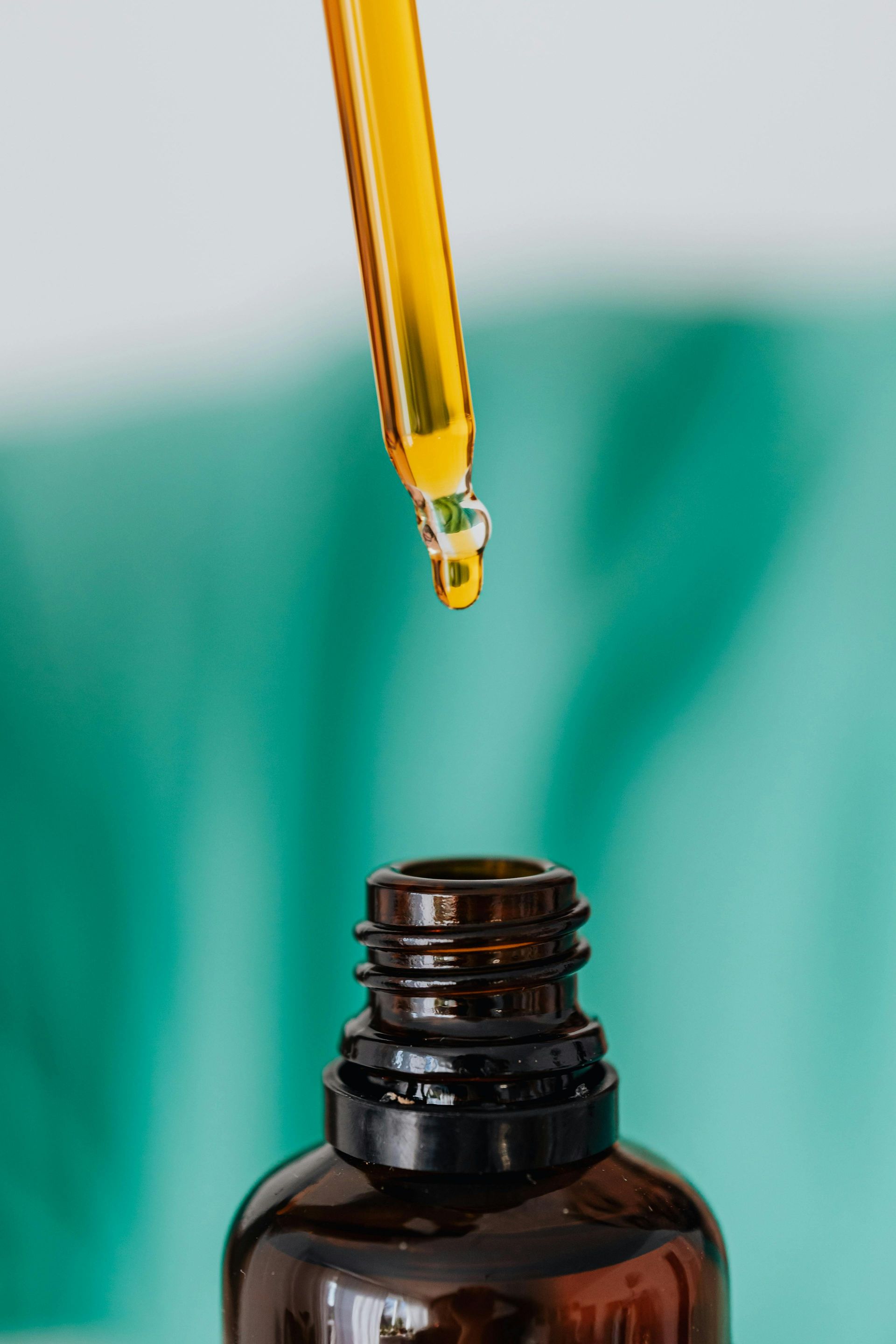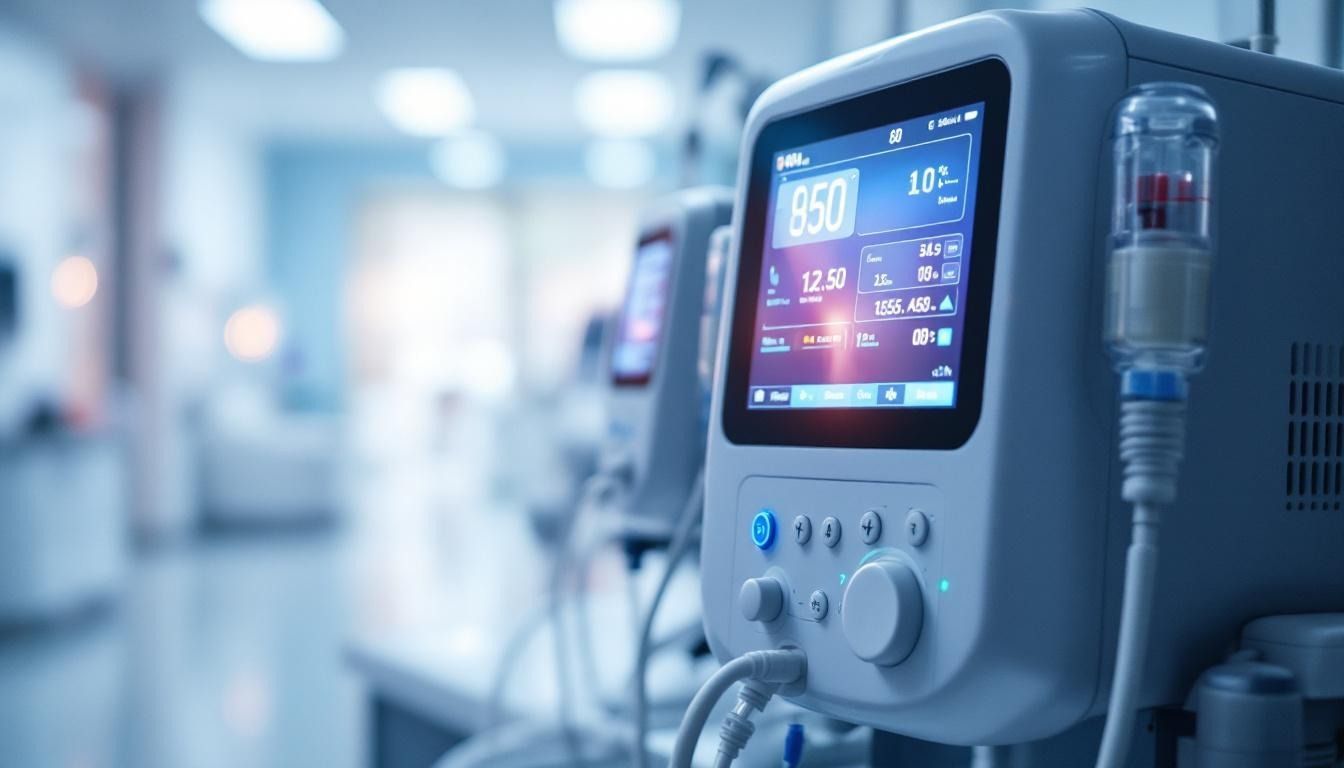How TPN impacts your diet plan
Understanding Total Parenteral Nutrition
For patients whose traditional means of oral or enteral nutrition is not feasible, Total Parenteral Nutrition (TPN) steps in as a vital alternative. Administered intravenously, TPN aims to supply the body with all necessary nutrients, impacting dietary plans significantly. This article explores how TPN fits into and influences dietary management for individuals facing gastrointestinal challenges, its broader implications on nutrition and health, and addresses several key questions about TPN.
What is Total Parenteral Nutrition (TPN)?

Definition and Purpose of TPN
Total Parenteral Nutrition (TPN) is an intravenous method of delivering complete nutrition to individuals who are unable to absorb nutrients through their gastrointestinal tract. This includes administering a carefully formulated blend of carbohydrates, proteins, fats, vitamins, and minerals directly into a large central vein. TPN is crucial for patients facing severe malnutrition as a result of conditions such as Crohn's disease, bowel obstructions, or after surgeries that necessitate bowel rest.
Comparison with Enteral Nutrition
TPN is distinctly different from enteral nutrition, often referred to as tube feeding. While TPN provides nutrition through an IV line, enteral nutrition delivers liquid nutrients directly to the stomach or intestine via a feeding tube. This method is preferred when the gastrointestinal system is functioning but unable to meet nutritional needs adequately. Compared to tube feeding, TPN is more invasive, generally more expensive, and carries a greater risk of complications such as infections. Tube feeding tends to promote a quicker recovery of the gut and is associated with fewer metabolic disturbances.
Conditions Requiring TPN
Several medical situations necessitate TPN. Conditions such as gastrointestinal disorders, including inflammatory bowel disease or short bowel syndrome, can impair nutrient absorption. Surgical interventions, particularly those involving significant alterations to digestive anatomy, further underline the need for TPN. For example, critically ill patients or those undergoing treatment for cancer may also require TPN to meet their nutritional needs when conventional means are inadequate.
| Aspect | TPN | Enteral Nutrition |
|---|---|---|
| Administration Method | Intravenous (IV) | Feeding tube (stomach/intestine) |
| Nutritional Delivery | Complete nutrition | Supplemental or complete |
| Risk of Infection | Higher due to IV line | Lower due to less invasive method |
| When to Use | Malabsorption, severe digestive issues | Functional GI tract but insufficient intake |
This tailored approach of TPN illustrates how critical it is for managing and supporting patients who are unable to consume or absorb adequate nutrition due to various medical conditions.
When is TPN used and how does it supplant traditional food intake?
Conditions that necessitate TPN
Total Parenteral Nutrition (TPN) is critical for patients unable to absorb nutrients through their gastrointestinal tract due to various medical conditions. Common indications for TPN include:
- Short bowel syndrome : Significant portions of the intestine are non-functional, leading to malabsorption.
- Crohn's disease : Active inflammation impairs digestion, often requiring nutritional support.
- Gastrointestinal surgeries : Patients recovering from surgeries, like intestinal resection, may need TPN to allow their digestive system to heal.
- Cancer : Treatment may cause nausea or blockages, leading to the need for nutritional alternatives.
How TPN provides nutrition
TPN replaces traditional food intake by delivering all essential nutrients directly into the bloodstream through an IV line. This method bypasses the digestive system entirely, offering a custom formula that typically includes:
| Nutrient Type | Role in Nutrition |
|-------------------|----------------------------|
| Proteins | Muscle building | Important for tissue repair and growth. |
| Carbohydrates | Energy source | Fueling the body's metabolic needs. |
| Fats | Overall health | Supporting cell function and energy. |
| Vitamins & Minerals| Vital health functions | Assisting in metabolic processes and immunity. |
TPN's role in medical treatment
TPN plays a vital role in stabilizing patients with severe malnutrition and supporting recovery. It is often utilized when enteral nutrition is not feasible, ensuring that patients receive necessary calories and nutrients. Approximately 30,000-35,000 people in the U.S. depend solely on TPN to meet their caloric and nutritional requirements. This therapy can be administered in hospitals or even at home, emphasizing its flexibility and importance in enhancing the quality of life for patients with complex medical needs.
The Role of TPN in Various Health Conditions
TPN's Psychological and Physical Impacts
Total Parenteral Nutrition (TPN) significantly impacts both the physical and emotional well-being of patients. For individuals reliant on TPN, such as those with severe gastrointestinal disorders, the psychological burden can be substantial. Many experience feelings of social isolation due to the inability to share meals with family and friends. The commitment to TPN often requires adjustments to daily life, with some patients needing to remain connected to intravenous nutrition for extended hours each day. This lifestyle change can lead to emotional challenges, emphasizing the importance of psychological support during TPN therapy.
Specialized Cases and Patient Stories
Patients requiring TPN vary widely in their medical conditions. For instance, children with short bowel syndrome rely on customized TPN solutions to meet their nutrient needs vital for growth and development. One such patient highlighted the effectiveness of TPN in managing extreme malnutrition after gastrointestinal issues rendered them unable to eat. In other situations, TPN acts as a bridge to recovery or surgery, addressing malnutrition before significant procedures, shown to reduce postoperative complications.
Long-Term Implications
Long-term dependence on TPN can present numerous challenges and risks. Daily management of nutrient intake becomes crucial to prevent complications such as liver dysfunction and metabolic imbalances. The implications of eating while on TPN also depend on individual medical conditions; for some, the gastrointestinal tract must remain undisturbed, while others may carefully introduce oral food intake alongside TPN. Regular consultations with healthcare providers are essential to tailor dietary plans to minimize risks and optimize nutritional status.
What are the implications of eating while on TPN?
The implications of eating while on Total Parenteral Nutrition (TPN) vary depending on the individual’s medical condition. Some patients may be able to supplement their nutrition orally, while others may risk complications such as blockages or dehydration if their gastrointestinal tract is not functioning properly. Although TPN provides essential nutrients through intravenous means, patients may still encounter side effects such as malnutrition, dehydration, and metabolic abnormalities. Regular monitoring through lab tests is crucial for managing health and adjusting nutrient intake accordingly. Discussions with healthcare providers are essential to tailor treatment plans and address any risks associated with oral food intake while on TPN.
Appetite Modulation and Dietary Patterns under TPN

How TPN Affects Hunger Levels
Total parenteral nutrition (TPN) profoundly influences appetite, with evidence showing a reduction in voluntary food intake among individuals receiving this form of nutritional support. This was highlighted in a study involving two male rhesus monkeys, where the effects of TPN varied considerably. One monkey succeeded in maintaining its body weight effectively while achieving a stable regulation of its daily oral caloric intake, while the other displayed less success in managing its intake. This variability suggests that individual responses to TPN can differ significantly.
Appetite Changes Post-TPN
Interestingly, the effects of TPN on appetite can persist even after the therapy is discontinued. The same monkeys, after stopping TPN, continued to suppress their oral food intake for a notable period, indicating that TPN may have lingering effects on hunger and satiety signals. The modulation of appetite through TPN introduces complexities in dietary patterns as patients often adjust to their diminished hunger, which can influence their nutritional management when reintroducing oral intake.
Individual Differences in Response
The differences observed in the monkeys underline the importance of recognizing individual differences in appetite modulation during TPN. Factors such as age, medical conditions, and psychological aspects all play a role in how someone might respond to TPN. Therefore, while TPN serves as a vital source of nutrition, adjustments to a person’s diet planning and appetite management must be carefully tailored to optimize their health outcomes when transitioning off TPN.
Monitoring and Managing TPN Side Effects

What are the common side effects of TPN?
The common side effects of total parenteral nutrition (TPN) include various risks linked to the intravenous (IV) administration. Some prominent complications are:
- Infections : The use of catheters for IV delivery increases the risk of infections, particularly at the insertion site.
- Bleeding and Blood Clots : Catheter placement can lead to bleeding and also increase the risk of thrombosis.
- Gastrointestinal Shutdown : TPN may lead to atrophy of the gastrointestinal tract due to lack of use, which can complicate future dietary management.
- Liver Damage : Prolonged use of TPN can result in liver complications, including cholestasis and parenteral nutrition-associated liver disease (PNALD), related to the metabolism of fats and glucose imbalance.
These side effects necessitate careful monitoring and proactive management to ensure patient safety and the efficacy of the nutritional support provided.
What strategies can mitigate risks associated with TPN?
To reduce the risks associated with TPN, healthcare providers can implement several strategies:
- Aseptic Technique : Employ strict aseptic protocols during catheter insertion and maintenance to minimize the risk of infection.
- Regular Monitoring : Frequent assessment of blood glucose levels and liver function tests to detect any early signs of complications.
- Dietary Adjustments : Incorporate enteral feeding when possible to stimulate gastrointestinal function and reduce reliance on TPN.
- Tailored Formulations : Customizing TPN formulations based on individual nutritional needs and ongoing lab results to minimize metabolic complications.
What monitoring protocols are essential during TPN therapy?
The monitoring of patients on TPN involves a comprehensive set of protocols:
- Fluid and Electrolyte Balance : Regular monitoring to prevent dehydration or overload, which can lead to heart complications.
- Nutritional Parameters : Monitoring electrolytes, amino acids, and trace elements to ensure adequate nutrient provision and detect deficiencies early.
- Infection Signs : Evaluating for any increase in temperature or local signs of infection at the catheter site.
- Regular Follow-ups : Scheduled assessments with healthcare teams to adjust TPN solutions as needed, ensuring continued efficacy and safety in managing their diet.
Overall, understanding these side effects and implementing robust monitoring and management strategies are vital for optimizing health outcomes for patients on TPN.
TPN for Pediatric Patients
TPN's impact on children's growth
Total Parenteral Nutrition (TPN) is critical for children whose digestive systems cannot process food adequately. This method of nutrient delivery is essential, particularly for those with gastrointestinal disorders, ensuring they receive enough calories and nutrients vital for their growth and development.
Tailoring TPN for young patients
TPN solutions for children are customized based on their unique nutritional requirements, which can vary significantly with age and medical conditions. Healthcare providers carefully monitor lab results to adjust the nutrient composition, encompassing proteins for muscle growth, carbohydrates for energy, and fats for overall health. This tailored approach is necessary to prevent developmental delays that can occur from inadequate nutrition.
Challenges and protocols for pediatric TPN administration
Administering TPN to pediatric patients presents its own set of challenges. For example, some children may feel hunger even while on TPN, requiring careful adjustments to their diet plan. Ongoing monitoring of fluid intake, electrolyte balance, and liver function is crucial to mitigate risks such as infection and metabolic complications. Healthcare teams work to provide comprehensive care, focusing not only on nutrition but also on the emotional support needed for conditions impacting daily family life.
Balancing TPN with Traditional Diets
Integration of TPN and Oral Intake
Total Parenteral Nutrition (TPN) can sometimes be integrated with oral nutrition, particularly when patients can tolerate small amounts of food. In these cases, healthcare providers may recommend partial parenteral nutrition, allowing individuals to obtain calories from both TPN and oral sources. This hybrid approach can help maintain gastrointestinal function and prevent atrophy by engaging the digestive system, while still meeting the patient’s nutritional needs.
Transitioning from TPN to Regular Diets
Transitioning from TPN to a regular diet must be done cautiously. The process begins when the patient's condition improves, enabling them to slowly increase their oral food intake. This gradual reintroduction allows for careful monitoring of tolerance and nutritional status. Ideally, healthcare professionals will adjust the TPN formulations and dosing as the patient’s oral intake increases, ensuring a balanced nutrient provision throughout the transition.
Patient Management During Mixed Nutrition Therapies
Managing patients on a mixed therapy of TPN and oral intake involves close monitoring of nutritional parameters and adjusting diets as necessary. Healthcare teams assess micronutrient levels, weight changes, and overall health to tailor nutritional plans effectively. Education for patients and caregivers on recognizing signs of deficiencies or imbalances is critical for promoting positive health outcomes. Furthermore, this holistic dietary management can support emotional and social aspects of eating, crucial for the patient’s quality of life.
The Technical Aspects of TPN Administration

Details of TPN formulation and delivery
Total Parenteral Nutrition (TPN) consists of a precise mixture of nutrients essential for patients unable to ingest food orally. This mixture typically includes carbohydrates, proteins, fats, vitamins, and minerals, all delivered directly into the bloodstream via a central venous catheter (CVC) or a peripherally inserted central catheter (PICC). The infusion process usually occurs over 10 to 12 hours, often during the night, allowing for continuous nutrient delivery.
Customizing TPN for individual needs
Each patient's TPN solution is carefully tailored based on a thorough assessment of their nutritional requirements, which takes into account age, medical condition, and laboratory results. Healthcare professionals utilize ongoing evaluations to adjust the TPN formulation, ensuring that it meets the individual's specific caloric and macronutrient needs while preventing complications. This customization is particularly critical for children or patients with unique dietary restrictions due to medical conditions.
Innovations in TPN technology
Recent advancements in TPN technology have enhanced its safety and effectiveness. Innovations such as lipid emulsions derived from fish oil have been introduced to improve liver function and reduce complications. Additionally, smart infusion systems are being developed to monitor and adjust nutrient intake automatically, thus optimizing patient outcomes and reducing the risk of metabolic disorders associated with traditional TPN administration.
TPN's Influence on Dietary Plans for Gastrointestinal Disorders
TPN in managing inflammatory bowel disease (IBD)
Total parenteral nutrition (TPN) plays a significant role for patients suffering from inflammatory bowel disease (IBD). It serves as a vital support system when enteral feeding is impractical due to symptoms like severe diarrhea or bowel obstructions. TPN is tailored to each patient's nutritional needs, which may exceed 1 g/kg/day of protein in active IBD cases. This bespoke formulation is essential, as it not only addresses the immediate nutritional requirements but also aids in preventing malnutrition during periods of heightened metabolic demand.
Dietary frameworks with TPN for gastrointestinal health
Establishing appropriate dietary frameworks while using TPN is crucial for optimal management of gastrointestinal conditions. The TPN solutions usually consist of a balanced mix of protein, carbohydrates, fats, electrolytes, and vitamins. Regular monitoring of liver function, hydration levels, and nutrient electrolytes ensures that the patient maintains good health. Adjustments can be made based on lab results and nutritional assessments, promoting personalized dietary strategies.
Case studies and practical applications
Real-life case studies highlight the effectiveness of TPN in managing challenges faced by individuals with severe gastrointestinal disorders. For instance, a patient undergoing treatment for Crohn's disease demonstrated significant recovery when utilizing TPN preoperatively, illustrating the method's potential to enhance healing outcomes.
In summary, TPN offers tailored solutions that not only meet immediate nutritional needs but also significantly reshape dietary management for patients with gastrointestinal disorders.
Research and Future Directions in TPN

Advancements in TPN formulations
Recent advancements in Total Parenteral Nutrition (TPN) formulations include the development of lipid emulsions that enhance liver function and reduce complications. Innovations like incorporating omega-3 fatty acids have shown promise in improving overall outcomes for patients reliant on TPN.
Current studies on long-term effects
Current studies are focusing on the long-term effects of TPN use, particularly concerning metabolic disorders and liver health. Research indicates a correlation between extended TPN therapy and complications such as parenteral nutrition-associated liver disease (PNALD), prompting healthcare teams to prioritize regular monitoring of liver function and patient nutrition status.
Future perspectives on TPN use
Looking forward, the future of TPN use includes greater emphasis on personalized nutrition based on genetic and metabolic profiles, aiming to optimize treatment efficiency. Researchers are investigating the impact of enteral feeding opportunities alongside TPN to minimize complications and enhance quality of life for patients. Improving patient education on recognizing metabolic imbalances could also lead to better management strategies.
Conclusion: Navigating Nutrition with TPN
Total Parenteral Nutrition (TPN) plays a crucial role in meeting the dietary needs of individuals who cannot rely on traditional food intake. While offering life-saving benefits, TPN requires careful management and monitoring to mitigate potential risks. As medical research progresses, TPN continues to evolve, providing hope for improved nutritional strategies and quality of life for patients with complex dietary needs.
References
- Parenteral Nutrition: What it Is, Uses & Types - Cleveland Clinic
- Total Parenteral Nutrition (TPN) Frequently Asked Questions
- Overview of Total Parenteral Nutrition in Patients With Inflammatory ...
- Total Parenteral Nutrition (TPN) FAQ - AmeriPharma® Specialty Care
- Personal patient story – Eating is not a luxury and food is much more ...
- Home parenteral nutrition - Mayo Clinic
- Malnutrition Treatment - Feeding Tube vs. IV Nutrition
- How Total Parenteral Nutrition (TPN) Works - Verywell Health













